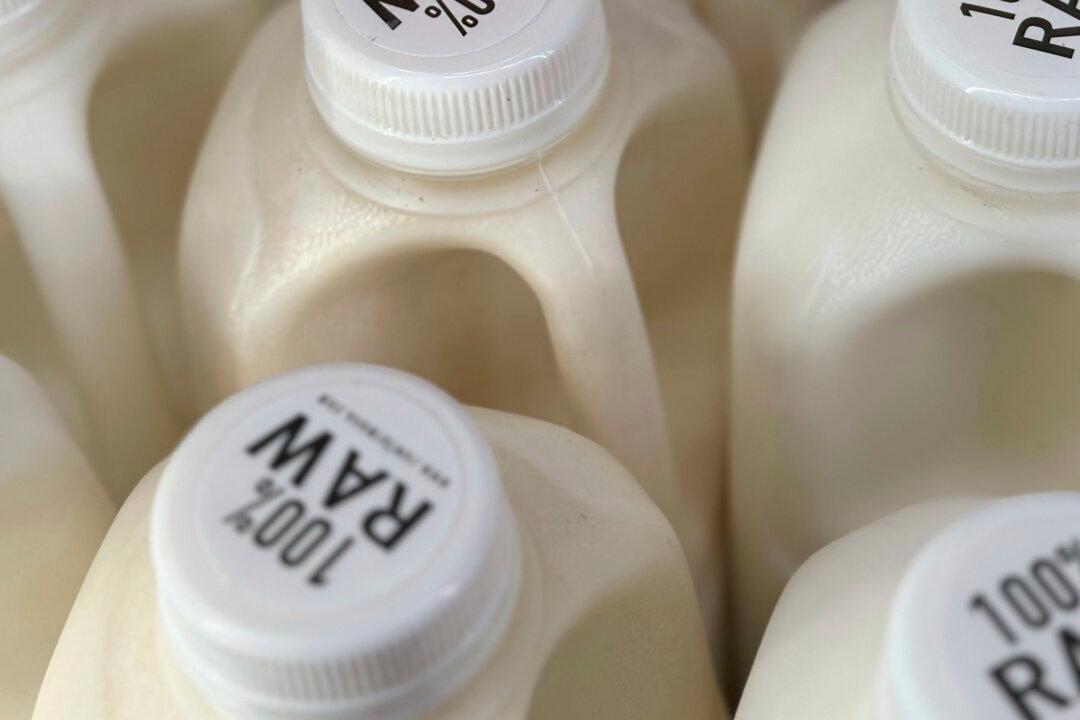All remaining raw milk and cream products from the company Raw Farm, LCC, are being pulled from shelves in California after further testing within the past week found the H5N1 bird flu virus in the products, state officials announced on Dec. 3.
Officials secured the “broad, voluntary” recall of the remaining products in stores after the items tested positive for the virus, also known as avian influenza, at both retail and dairy storage and bottling sites, the California Department of Public Health (CDPH) said in a statement.




